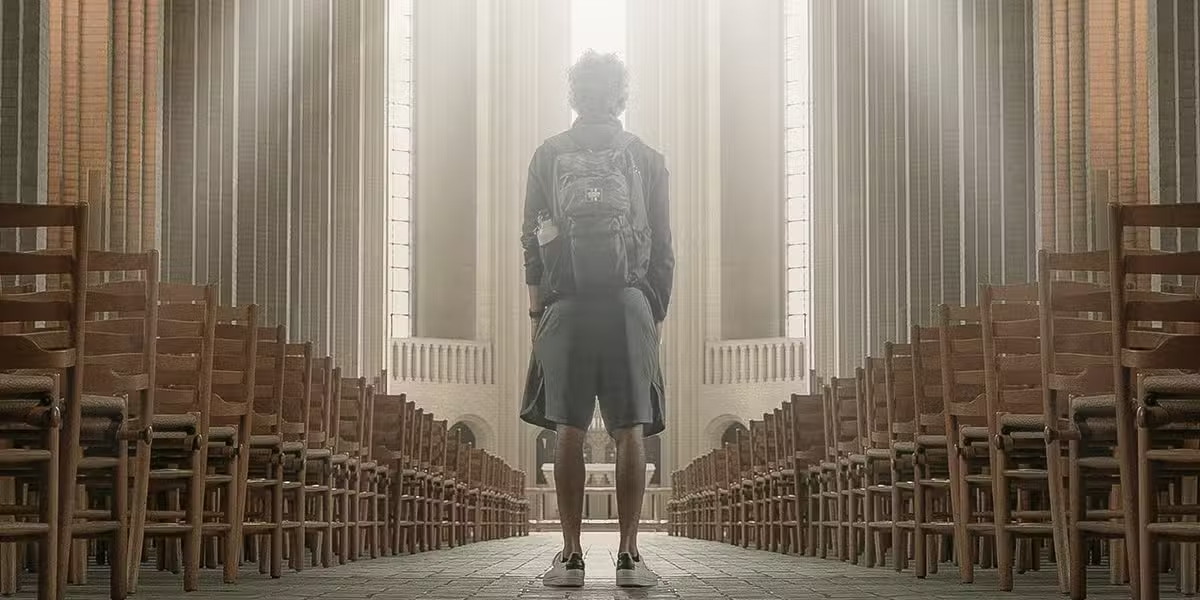WASHINGTON (CNS) — In a 6-3 ruling May 23, the Supreme Court said two Arizona death-row inmates could not present new evidence of ineffective counsel they said they received in state trials during their federal appeals.
The inmates have argued that their lawyers failed to present evidence that could have exonerated them from death sentences.
Justice Clarence Thomas, writing the majority opinion, stressed that “only rarely may a federal habeas court ear a claim or consider evidence that a prisoner did not previously present to the state courts.”
The dissent, written by Justice Sonia Sotomayor and joined by Justices Stephen Breyer and Elena Kagan, called the court’s decision both perverse and illogical and also said it showed an indifference to violating the Sixth Amendment guarantee of a fair trial.
She said the court’s decision in this case “will leave many people who were convicted in violation of the Sixth Amendment to face incarceration or even execution without any meaningful chance to vindicate their right to counsel.”
The case, Shinn v. Ramirez, examines the postconviction appeals of David Martinez Ramirez and Barry Lee Jones, who both have been sentenced to death for murder convictions in Arizona.
Ramirez was convicted on two counts of first-degree murder for the 1989 stabbing deaths of his girlfriend and her 15-year-old daughter. Jones was convicted of murder, sexual assault and child abuse in 1994 for the death of his girlfriend’s 4-year-old daughter.
Although inmates can challenge their sentences under the Constitution, the Antiterrorism and Effective Death Penalty Act of 1996 says they can only use evidence previously produced in state court proceedings.
In separate rulings in 2020, the 9th U.S. Circuit Court of Appeals ordered new hearings for both men, citing the Supreme Court’s 2012 decision in Martinez v. Ryan, which gave an opening for inmates to show evidence found after the state court proceedings.
In the May 23 decision, Thomas emphasized that to allow additional hearings based on new evidence would encourage more federal litigation on defaulted claims.
“State prisoners already have a strong incentive to save claims for federal habeas proceedings in order to avoid the highly deferential standard of review that applies to claims properly raised in state court,” Thomas wrote. “Permitting federal fact-finding would encourage yet more federal litigation of defaulted claims.”
The dissent criticized the opinion’s focus on the gruesome aspects of the murders, emphasizing that the Constitution points out “that no matter how heinous the crime, any conviction must be secured respecting all constitutional protections.”
In Ramirez’s case, the inmate claims his trial counsel failed to pursue evidence of his intellectual disability and history of being abused as a child. Jones said his counsel failed to review the medical evidence and timeline in the death of the 4-year-old girl and supporters have pointed to evidence of his innocence.
After the court heard oral arguments in these combined cases last December, Sister Helen Prejean tweeted: “The case involves some complicated legal questions, but the arguments that Arizona made are both simple and dangerous. If Arizona has its way, innocent people could be executed because they had incompetent lawyers.”
Sister Prejean, a Sister of St. Joseph of Medaille, who is a longtime opponent of the death penalty, tweeted May 23 that the court’s decision means that “Ramirez and Jones will not be permitted to present new evidence in federal court, just the lackluster evidence previously presented by their ineffective lawyers in state court. In Jones’s case, this means no new evidence of innocence.”
Robert Loeb, attorney for the inmates, said the court’s ruling “leaves the fundamental constitutional right to trial counsel with no effective mechanism for enforcement in these circumstances.”
“It means that a federal court can have evidence that someone, like Barry Jones, did not commit the crime supporting the death sentence, but that the court then is helpless to offer any relief,” he said in a May 23 statement. “The decision misreads the federal statute, produces untenable results never envisioned by Congress, and amounts to an assault on basic fairness in the criminal justice system.”
By Carol Zimmermann | Catholic News Service







News & Commentary
Supreme Court sides with Arizona in death penalty cases
WASHINGTON (CNS) — In a 6-3 ruling May 23, the Supreme Court said two Arizona death-row inmates could not present new evidence of ineffective counsel they said they received in state trials during their federal appeals.
The inmates have argued that their lawyers failed to present evidence that could have exonerated them from death sentences.
Justice Clarence Thomas, writing the majority opinion, stressed that “only rarely may a federal habeas court ear a claim or consider evidence that a prisoner did not previously present to the state courts.”
The dissent, written by Justice Sonia Sotomayor and joined by Justices Stephen Breyer and Elena Kagan, called the court’s decision both perverse and illogical and also said it showed an indifference to violating the Sixth Amendment guarantee of a fair trial.
She said the court’s decision in this case “will leave many people who were convicted in violation of the Sixth Amendment to face incarceration or even execution without any meaningful chance to vindicate their right to counsel.”
The case, Shinn v. Ramirez, examines the postconviction appeals of David Martinez Ramirez and Barry Lee Jones, who both have been sentenced to death for murder convictions in Arizona.
Ramirez was convicted on two counts of first-degree murder for the 1989 stabbing deaths of his girlfriend and her 15-year-old daughter. Jones was convicted of murder, sexual assault and child abuse in 1994 for the death of his girlfriend’s 4-year-old daughter.
Although inmates can challenge their sentences under the Constitution, the Antiterrorism and Effective Death Penalty Act of 1996 says they can only use evidence previously produced in state court proceedings.
In separate rulings in 2020, the 9th U.S. Circuit Court of Appeals ordered new hearings for both men, citing the Supreme Court’s 2012 decision in Martinez v. Ryan, which gave an opening for inmates to show evidence found after the state court proceedings.
In the May 23 decision, Thomas emphasized that to allow additional hearings based on new evidence would encourage more federal litigation on defaulted claims.
“State prisoners already have a strong incentive to save claims for federal habeas proceedings in order to avoid the highly deferential standard of review that applies to claims properly raised in state court,” Thomas wrote. “Permitting federal fact-finding would encourage yet more federal litigation of defaulted claims.”
The dissent criticized the opinion’s focus on the gruesome aspects of the murders, emphasizing that the Constitution points out “that no matter how heinous the crime, any conviction must be secured respecting all constitutional protections.”
In Ramirez’s case, the inmate claims his trial counsel failed to pursue evidence of his intellectual disability and history of being abused as a child. Jones said his counsel failed to review the medical evidence and timeline in the death of the 4-year-old girl and supporters have pointed to evidence of his innocence.
After the court heard oral arguments in these combined cases last December, Sister Helen Prejean tweeted: “The case involves some complicated legal questions, but the arguments that Arizona made are both simple and dangerous. If Arizona has its way, innocent people could be executed because they had incompetent lawyers.”
Sister Prejean, a Sister of St. Joseph of Medaille, who is a longtime opponent of the death penalty, tweeted May 23 that the court’s decision means that “Ramirez and Jones will not be permitted to present new evidence in federal court, just the lackluster evidence previously presented by their ineffective lawyers in state court. In Jones’s case, this means no new evidence of innocence.”
Robert Loeb, attorney for the inmates, said the court’s ruling “leaves the fundamental constitutional right to trial counsel with no effective mechanism for enforcement in these circumstances.”
“It means that a federal court can have evidence that someone, like Barry Jones, did not commit the crime supporting the death sentence, but that the court then is helpless to offer any relief,” he said in a May 23 statement. “The decision misreads the federal statute, produces untenable results never envisioned by Congress, and amounts to an assault on basic fairness in the criminal justice system.”
By Carol Zimmermann | Catholic News Service